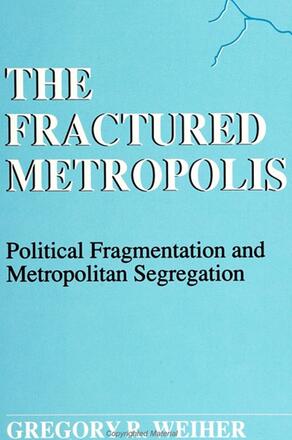
The Fractured Metropolis
Political Fragmentation and Metropolitan Segregation
Alternative formats available from:
Gregory R. Weiher is Assistant Professor of Political Science at the University of Houston.
Reviews
"I think this book is an outstanding original interpretation of urban political and social fragmentation. The argument is elegantly expressed and tailored to its place in existing theory with exceptional clarity and skill. The field of urban politics has frequently been characterized as lacking coherent political and social theory, except perhaps, for that contributed by economists. This book runs squarely in the other direction giving considerable form to an explicit information processing theory of mass behavior in which fundamental political institutional arrangements, such as political boundaries, play not just a role, but are decisive in explaining commonly observed patterns in racial distributions. Seldom have undeniably political factors been assigned such a central role in explaining widespread social phenomena." — Carol W. Kohfeld, University of Missouri, St. Louis